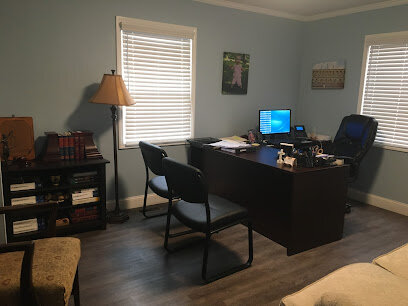Best Elder Abuse Law Lawyers in Arkansas
Share your needs with us, get contacted by law firms.
Free. Takes 2 min.
Or refine your search by selecting a city:
List of the best lawyers in Arkansas, United States
About Elder Abuse Law in Arkansas, United States
Elder abuse law in Arkansas addresses the mistreatment, neglect, and exploitation of individuals aged 60 and older. These laws are designed to protect vulnerable seniors from harm, whether it occurs in their own homes, in family settings, or within long-term care facilities. Elder abuse includes physical abuse, emotional or psychological abuse, sexual abuse, financial exploitation, and neglect. Arkansas has set statutes and procedures to investigate, prevent, and prosecute cases of elder abuse, ensuring that seniors have the legal protections they deserve.
Why You May Need a Lawyer
Elder abuse cases can be legally and emotionally complex. You or your loved one may need a lawyer in situations such as:
- Suspecting or witnessing abuse or neglect in a nursing home or assisted living facility.
- Discovering signs of financial exploitation, such as unauthorized withdrawals or changes in legal documents like wills or powers of attorney.
- Encountering difficulties with state agencies responsible for investigating abuse claims.
- Being accused of elder abuse or needing to defend your actions as a caregiver or family member.
- Seeking compensation for injuries or losses suffered by an elderly individual.
- Navigating issues related to guardianship, conservatorship, or advance directives involving a vulnerable senior.
- Reporting abuse where you want guidance on how to best protect the elder’s rights and safety.
Local Laws Overview
In Arkansas, the Adult Maltreatment Custody Act and the Adult and Long-Term Care Facility Resident Maltreatment Act are the primary statutes addressing elder abuse. Key points include:
- Mandatory reporting: Certain professionals, such as healthcare workers, social workers, and caregivers, are legally required to report suspected abuse of elders to the Arkansas Department of Human Services (DHS) or law enforcement.
- Types of abuse covered: The laws protect elders from physical, sexual, and emotional abuse, financial exploitation, and neglect.
- Definitions: “Adult maltreatment” includes abandonment, abuse, exploitation, or neglect of an adult who is impaired or otherwise vulnerable.
- Agency involvement: The DHS Adult Protective Services (APS) investigates reports of maltreatment and takes necessary steps to protect victims.
- Criminal penalties: Those who commit elder abuse or neglect may face criminal prosecution, fines, and potential imprisonment.
- Protective orders: Courts may issue emergency protective orders to remove abusive individuals or provide immediate relief for the elder.
Frequently Asked Questions
What is considered elder abuse in Arkansas?
Elder abuse in Arkansas includes physical or emotional harm, sexual abuse, neglect, financial exploitation, or any action that causes unnecessary suffering or risk to a person aged 60 or older.
Who is required to report suspected elder abuse?
Arkansas law requires certain professionals such as medical staff, social workers, police officers, clergy, and caregivers to report suspected abuse. However, anyone can and should report elder abuse if they suspect it.
How do I report elder abuse in Arkansas?
You can report suspected abuse to the Arkansas Department of Human Services Adult Protective Services hotline or to local law enforcement authorities. Reports can be made anonymously.
What happens after an abuse report is filed?
After a report is made, Adult Protective Services will investigate the allegations, assess the elder’s situation, and determine what interventions or services are necessary to ensure safety.
What are the penalties for elder abuse in Arkansas?
Penalties depend on the type and severity of abuse but can include misdemeanor or felony charges, criminal fines, imprisonment, and civil liabilities.
Can elder abuse happen in nursing homes?
Yes, elder abuse can occur in nursing homes, assisted living facilities, or any place where adults are dependent on others for care.
What signs may indicate elder abuse?
Common signs include unexplained injuries, sudden changes in behavior, withdrawal from social activities, poor hygiene, unpaid bills, or unusual changes in financial or legal documents.
Can I sue someone for elder abuse in Arkansas?
Yes, victims or their representatives may file civil lawsuits to recover damages for injuries or losses resulting from abuse or neglect.
What legal protections are available for victims?
Courts can issue emergency protective orders, appoint guardians or conservators, and mandate abusers to stay away from the elder.
Where can I seek legal help for elder abuse cases?
You can seek assistance from private attorneys specializing in elder law, local legal aid organizations, or state agencies such as the Arkansas Department of Human Services.
Additional Resources
If you or someone you know needs help dealing with elder abuse in Arkansas, consider contacting the following resources:
- Arkansas Department of Human Services Adult Protective Services - Investigates and intervenes in cases of elder abuse, neglect, and exploitation.
- Arkansas Long-Term Care Ombudsman Program - Advocates for residents of nursing homes and long-term care facilities.
- Arkansas Attorney General’s Office - Provides information and assistance regarding consumer protection and elder rights.
- Area Agencies on Aging - Offers support services for seniors and their families.
- Legal Aid of Arkansas - Provides free or low-cost legal assistance to qualifying individuals.
- Local law enforcement - Responds to reports of immediate danger or criminal acts.
Next Steps
If you suspect elder abuse or need legal guidance, consider the following steps:
- Report the abuse or neglect to the Arkansas Department of Human Services or your local law enforcement agency immediately, especially if the elder is in immediate danger.
- Document any signs or evidence of abuse, including photographs, medical records, or financial statements that show abnormalities.
- Seek medical attention for the victim if needed.
- Contact a lawyer experienced in elder abuse law to discuss your legal options and responsibilities. They can help you understand the best course of action, including protective orders or civil lawsuits.
- If you are a mandated reporter, fulfill your legal duty by providing an accurate and timely report.
- Utilize available community or state resources for additional support and assistance as you navigate this difficult process.
Addressing elder abuse is a serious matter. Acting quickly and seeking the right legal, medical, and community support can protect vulnerable individuals and hold offenders accountable.
Lawzana helps you find the best lawyers and law firms in Arkansas through a curated and pre-screened list of qualified legal professionals. Our platform offers rankings and detailed profiles of attorneys and law firms, allowing you to compare based on practice areas, including Elder Abuse Law, experience, and client feedback.
Each profile includes a description of the firm's areas of practice, client reviews, team members and partners, year of establishment, spoken languages, office locations, contact information, social media presence, and any published articles or resources. Most firms on our platform speak English and are experienced in both local and international legal matters.
Get a quote from top-rated law firms in Arkansas, United States — quickly, securely, and without unnecessary hassle.
Disclaimer:
The information provided on this page is for general informational purposes only and does not constitute legal advice. While we strive to ensure the accuracy and relevance of the content, legal information may change over time, and interpretations of the law can vary. You should always consult with a qualified legal professional for advice specific to your situation.
We disclaim all liability for actions taken or not taken based on the content of this page. If you believe any information is incorrect or outdated, please contact us, and we will review and update it where appropriate.
Browse elder abuse law law firms by city in Arkansas
Refine your search by selecting a city.
















